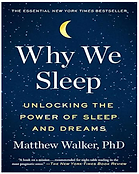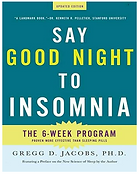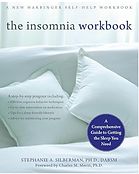Harnessing the Power of Books: A Gateway to Conquering Sleep Disorders and Attaining Quality Sleep
Sleep, a fundamental aspect of human existence, is often taken for granted. However, for millions of individuals around the world, sleep disorders present a daily struggle. In a world filled with constant stimuli and stressors, achieving restful sleep can be challenging. Fortunately, one powerful tool has emerged as a beacon of hope: books. Books about sleep have become a valuable resource, providing knowledge, guidance, and inspiration to overcome sleep disorders and attain quality sleep. In this blog, we will explore how books can help fight sleep disorders and transform restless nights into rejuvenating slumbers.
Understanding Sleep Disorders
Before we delve into the world of books, it is crucial to understand the various sleep disorders that afflict many individuals. From insomnia and sleep apnea to restless leg syndrome and narcolepsy, these disorders can disrupt sleep patterns and have detrimental effects on overall well-being. Books about sleep disorders offer insights into the causes, symptoms, and potential solutions for these conditions. By shedding light on the underlying factors, individuals can gain a better understanding of their sleep disorder, enabling them to take proactive steps towards recovery.
Educating Yourself: Knowledge is Power
Books serve as powerful educational tools, equipping readers with knowledge and information about sleep disorders. Authors often blend scientific research, personal anecdotes, and expert advice to offer a comprehensive understanding of the subject matter. Exploring books such as "Why We Sleep" by Matthew Walker or "The Circadian Code" by Satchin Panda can provide readers with valuable insights into the importance of sleep, the consequences of sleep deprivation, and strategies to improve sleep quality. Armed with this knowledge, individuals can make informed decisions about their sleep habits and seek appropriate professional help when necessary.
Developing Sleep Hygiene Habits
Books about sleep not only educate readers but also empower them to develop healthy sleep hygiene habits. Sleep hygiene refers to a set of practices and routines that promote optimal sleep. Through books like "Say Good Night to Insomnia" by Gregg D. Jacobs or "Sleep Smarter" by Shawn Stevenson, individuals can discover techniques to establish a consistent sleep schedule, create a relaxing bedtime routine, optimize their sleep environment, and incorporate mindfulness practices to quieten the mind before sleep. By implementing these habits, individuals can create an environment conducive to quality sleep and gradually overcome sleep disorders.
Cognitive Behavioral Therapy for Insomnia (CBT-I)
One of the most effective treatments for insomnia is Cognitive Behavioral Therapy for Insomnia (CBT-I). Books focused on CBT-I, such as "The Insomnia Workbook" by Stephanie Silberman or "Quiet Your Mind and Get to Sleep" by Colleen E. Carney and Rachel Manber, offer step-by-step guidance on breaking the cycle of sleeplessness. These books provide practical exercises, relaxation techniques, and cognitive strategies to address the underlying causes of insomnia. By engaging with CBT-I techniques, readers can rewire their thought patterns, develop healthier sleep habits, and regain control over their sleep.
Embracing Alternative Approaches
Books about sleep encompass a diverse range of approaches and philosophies. Some delve into ancient practices like yoga and meditation, while others explore the impact of nutrition and exercise on sleep quality.
Titles like "Zeez: Step by Step Guide for Quality Sleep" offer alternative perspectives and actionable strategies to achieving a quality sleep, but also actionable strategies to learn and practice techniques that will help with any future relapse or reoccurrence of sleeplessness.
Please see below some of the popular books on the topics. Please click on the book icon to order your copy.
The Importance of Bed and Bedroom Products for Quality Sleep
In today's fast-paced world, a good night's sleep has become a rare luxury for many. With hectic schedules, stress, and technology constantly vying for our attention, it's crucial to create a peaceful and conducive sleep environment. One of the key factors in achieving quality sleep is investing in the right bed and bedroom products. In this blog, we will delve into the significance of these products and how they can enhance your sleep experience.
The Bed:
The Foundation of Quality Sleep The bed is the centerpiece of any bedroom, and it plays a vital role in ensuring a restful sleep. A quality mattress is essential to support your body, promote proper alignment, and relieve pressure points. Whether you prefer a firm or soft mattress, finding the right level of comfort is essential to prevent tossing and turning throughout the night. Additionally, consider the size of the bed, as having enough space to move comfortably can significantly improve sleep quality.
Pillows:
Supporting Your Head and Neck Pillows are often underestimated when it comes to sleep quality. A suitable pillow helps maintain proper alignment of your head, neck, and spine, preventing discomfort and potential pain. Choosing the right pillow depends on your preferred sleep position (back, side, or stomach) and personal preferences. It's essential to find a pillow that adequately supports your head, keeps your neck aligned, and provides the necessary level of comfort.
Bedding:
Creating a Cozy Haven The quality of your bedding can make a significant difference in your sleep experience. Investing in high-quality sheets, blankets, and comforters can transform your bed into a cozy haven. Opt for breathable materials such as cotton or linen, as they regulate temperature and wick away moisture, keeping you cool and comfortable throughout the night. Soft and comfortable bedding helps create a relaxing atmosphere, promoting a sense of calm and tranquility essential for quality sleep.
Blackout Curtains:
Eliminating External Disturbances A dark and quiet environment is essential for uninterrupted sleep. Installing blackout curtains can effectively block out unwanted light from street lamps or early morning sun, helping you achieve a deeper sleep. By minimizing external disturbances, you create a peaceful atmosphere that enhances your body's natural sleep cycles.
Ambient Lighting:
Setting the Right Mood The lighting in your bedroom plays a significant role in preparing your body for sleep. Avoid bright and harsh overhead lighting before bedtime, as it can hinder the release of melatonin, a hormone that regulates sleep-wake cycles. Instead, opt for warm, soft lighting, such as bedside lamps or dimmer switches, to create a soothing and relaxing ambiance.
Organization and Clutter:
A Clear Mind for Sound Sleep A cluttered and disorganized bedroom can subconsciously impact your sleep quality. Creating an organized and tidy space can help alleviate stress and promote a calm state of mind. Keep your bedroom free from excessive clutter, and designate specific areas for different activities. A serene and clutter-free environment can contribute to a more restful sleep.
In the pursuit of quality sleep, the importance of bed and bedroom products cannot be overstated. From the right mattress and pillows to cozy bedding and ambient lighting, these elements come together to create a sleep sanctuary. By investing in these products and creating a peaceful environment, you can significantly improve your sleep quality, leading to better physical and mental well-being. Remember, a good night's sleep is a priceless gift that contributes to your overall quality of life, so prioritize your sleep environment and reap the benefits of restorative rest.
Please see below some products that may help . Please click on the product icon to order your products.







